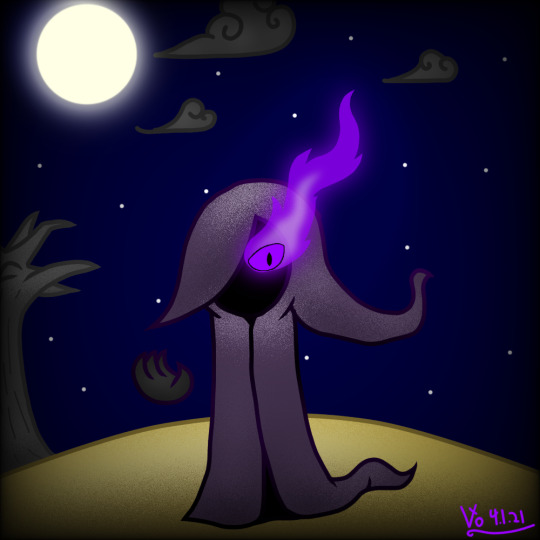#ive just been v inactive on fr is all
Explore tagged Tumblr posts
Text
Also it's funny. When Auraboas dropped i turned a tundra i had into an Auraboa and fully gened it, but I never gened the Auraboas I got at drop despite having some pretty solid scries imo.
I also haven't gened my dusthides.
Fathoms tho ? Here's Nelvaren and Nakaveh and I love them.


#i do plan on geneing out the feather snakes and the bald guys at some point#ive just been v inactive on fr is all#a lot of my dragons have been unnamed for like. 2 years by now#also. yes Nelvaren and Nakaveh are names I made for OCs on my main. i know.
0 notes
Text

-to all who find this, hi! name's Vo, short for Violet, and I'll be your host for my lovely little dumpster blog!
-you can also call me C4, Petrichor (Pet for short), or Cell
-all info about me is in the blog bio! (tho i still think i should make a carrd or smthn-
-i post hella inconsistently, but im usually around here from around 10am-1am est, if ya care (unless i say im inactive of course h-)
-------
My Sideblogs
-Just Shapes & Beats- @long-live-the-boss (returning!!)
-Pokémon- shhh.. coming soon!! (..probably)
-Vent blog- @demon-in-my-head. bc i can't keep putting that crap here.
-------
-please read this before following! and if you do follow, drop a like here to let me know you read this, pls!!!
-this will be edited when new stuff is added, so check back here every now and then!
-last edited- 6.10.2021
-all other info (sona ref, blog icons, tags, likes, uncomfies, dni's, etc.) is under the cut!
Sona Refs
-updated!!!!!

-click the image for better quality, if needed! ^-^
-------
Blog Icons
-current icon and past ones, just so you know if you've seen me before!


-------
Personal Tags
Some topics may have multiple tags!!
-Art tag- vo's art gallery, my art
-OCs i draw or talk abt will be tagged as original character, along with oc: [name of the OC]
-Me talking/rambling- vo yaps and yaps
-all asks will be tagged as [url of the asker] (or anonymous, if it came from an anon)
-^^^ i pretty much do this to be organized (and out of habit), but if ya don't wanna be tagged, do tell me!!
-Any music pieces or WIPs I post- vo's tunes, original song
-all albums will be tagged album, along with [the album's title]
-all singles will be tagged single, along with [the single's title]
-Reblogs (if at all)- rebloggle
-Things I consider important (or just straight up are important, like huge vital info posts or smthn)- important
-Vents- vent
-all my vents will only stay here for some time before being moved to the vent blog
-------
Likes & Hobbies
-Drawing (duh)
-Music (mainly listening, but ive been dabbling in making!)
-Designing OCs!! Hell yeah!
-srsly i have a lot plz ask id love to show them off-
-also do share your ocs w/me please i love seeing them-
-Games! Hella games!
-Space/astronomy is v nice
-B/ugs are p cool, too
-So are aliens/extraterrestrials
-And robots-
-Secretly a sucker for picrews and those lil quizzes n stuff. likely wouldn't do them publicly tho,,,
Current interests (in no particular order)-
💜Pokémon (ultra beasts especially h- 💜💜💜)
💜Just Shapes & Beats
Drawn to Life
Project Arrhythmia
Splatoon
Hollow Knight
💜Transformers
Legend of Zelda: Majora's Mask
Portal/Portal 2
probably some other stuff, i can't remember rn...
-------
Things I'm NOT okay with
-NSFW (bruh for the love of all that's holy and not, no horny around here)
-IRL Current Events (news, politics, drama, etc.) (only SOMETIMES it'd be ok)
THOUGH, that DOES NOT mean I won't ever reblog important posts. I absolutely will, if I see it.
-Certain media followings (please don't try to outright send me/show me these i beg you-)
H*zbin H*tel or H*lluva B*ss (pain)
Fr*day N*ght F*nkin (fear)
MC*YT stuff (i.e. Dre*m smp, etc.) (yeesh)
-------
Don't you even look at me if you:
are racist (including and especially wh*te supr*macist)
are any form of lgbtq+ phobic (from homophobic to biphobic, from transphobic to aspecphobic, etc.)
are a n*zi or support them
support tr*mp
are prejudiced against certain religious people(s) (antisemitic, islamophobic, etc.)
are xenophobic
do/fetishize/support (r*pe, p*dophilia, inc*st)
or are, in any way, shape, or form, a huge piece of shit, akin to the aforementioned.
^And if you even dare to cross my path, I will have you blocked/reported on sight.
4 notes
·
View notes
Photo

21st March >> Fr. Martin’s Gospel Reflections / Homilies on Luke 16:19-31 for Thursday, Second Week of Lent: ‘At his gate there lay a poor man’.
Thursday, Second Week of Lent
Gospel (Europe, Africa, New Zealand, Australia & Canada)
Luke 16:19-31
Dives and Lazarus
Jesus said to the Pharisees: ‘There was a rich man who used to dress in purple and fine linen and feast magnificently every day. And at his gate there lay a poor man called Lazarus, covered with sores, who longed to fill himself with the scraps that fell from the rich man’s table. Dogs even came and licked his sores. Now the poor man died and was carried away by the angels to the bosom of Abraham. The rich man also died and was buried.
‘In his torment in Hades he looked up and saw Abraham a long way off with Lazarus in his bosom. So he cried out, “Father Abraham, pity me and send Lazarus to dip the tip of his finger in water and cool my tongue, for I am in agony in these flames.” “My son,” Abraham replied “remember that during your life good things came your way, just as bad things came the way of Lazarus. Now he is being comforted here while you are in agony. But that is not all: between us and you a great gulf has been fixed, to stop anyone, if he wanted to, crossing from our side to yours, and to stop any crossing from your side to ours.”
‘The rich man replied, “Father, I beg you then to send Lazarus to my father’s house, since I have five brothers, to give them warning so that they do not come to this place of torment too.” “They have Moses and the prophets,” said Abraham “let them listen to them.” “Ah no, father Abraham,” said the rich man “but if someone comes to them from the dead, they will repent.” Then Abraham said to him, “If they will not listen either to Moses or to the prophets, they will not be convinced even if someone should rise from the dead.”’
Gospel (USA)
Luke 16:19-31
Good things came to you and bad things to Lazarus; now he is comforted while you are in agony.
Jesus said to the Pharisees: “There was a rich man who dressed in purple garments and fine linen and dined sumptuously each day. And lying at his door was a poor man named Lazarus, covered with sores, who would gladly have eaten his fill of the scraps that fell from the rich man’s table. Dogs even used to come and lick his sores. When the poor man died, he was carried away by angels to the bosom of Abraham. The rich man also died and was buried, and from the netherworld, where he was in torment, he raised his eyes and saw Abraham far off and Lazarus at his side. And he cried out, ‘Father Abraham, have pity on me. Send Lazarus to dip the tip of his finger in water and cool my tongue, for I am suffering torment in these flames.’ Abraham replied, ‘My child, remember that you received what was good during your lifetime while Lazarus likewise received what was bad; but now he is comforted here, whereas you are tormented. Moreover, between us and you a great chasm is established to prevent anyone from crossing who might wish to go from our side to yours or from your side to ours.’ He said, ‘Then I beg you, father, send him to my father’s house, for I have five brothers, so that he may warn them, lest they too come to this place of torment.’ But Abraham replied, ‘They have Moses and the prophets. Let them listen to them.’ He said, ‘Oh no, father Abraham, but if someone from the dead goes to them, they will repent.’ Then Abraham said, ‘If they will not listen to Moses and the prophets, neither will they be persuaded if someone should rise from the dead.’“
Reflections (7)
(i) Thursday, Second Week of Lent
We were all terribly shocked by the murder of so many worshippers in two mosques in Christchurch, New Zealand, last Friday. The man who carried out the awful attack was a self-confessed racist. It shocked the welcoming and peace-loving people of New Zealand. It left the police force and the politicians of New Zealand asking, ‘What could we have done to stop this from happening that we didn’t do?’ When a human tragedy on this scale happens, we invariably ask, ‘Is there something we, as a community, didn’t do we could have done?’ Sometimes the consequences of not doing some good can be as harmful as the consequences of doing some evil? In the parable in today’s gospel reading, the focus is not so much on one individual and a community or on two communities, but on two individuals, one of whom, a very wealthy man, did not do what he could have done, and the other, a destitute man, who suffered the consequences of the other man’s inactivity. The destitute man was looking for very little, just the scrapes that fell from the rich man’s table, but that little would have kept him alive for longer. What the rich man needed to do and could easily have done was very little, but he failed to do it. His failure to do the little that was asked of him and that was well within his ability had fatal consequences for someone else. The poor man died before he had to, and the rich man ended up in dire poverty in the next life. It is a challenging and unsettling parable for us all. It invites us to ask, ‘What am I failing to do that I could easily do, and who is suffering because of that failure?’
And/Or
(ii) Thursday, Second Week of Lent
The parables Jesus tells are intended to make us think and reflect. In the parable we have just heard, two people lived side by side, a rich man in his great house and a poor man at the gate of the house. Yet, there was a chasm between them; whereas the poor man looked towards the rich man for scraps, the rich man did not look towards the poor man but ignored him. The parable seems to be challenging us not to allow a chasm to develop between us and those who, although physically close to us, live in a very different world to the one we inhabit. The rich man in the parable lived in his own world and made no effort to enter the world of the beggar at his gate. We can all insulate ourselves in our own world. The parable challenges us to enter the world of the other and to allow the other to enter our world. That, in a sense, is what Jesus did; he entered our world and invited us to enter his world. We can do the same for each other. When we cross the threshold into the world of the other, into the world of those who are very different from us in all kinds of ways, we may discover that we not only have something to give the other but a great deal to receive as well.
And/Or
(iii) Thursday, Second Week of Lent
The parable in today’s gospel reading is about two men from very different ends of the social spectrum, one very rich and the other very poor. Even though they lived in close proximity to each other, there was a great gulf between them. The rich man treated the poor man as if he was not there, as if he did not exist, even though he was only a short distance away. He refused to notice him. His failure was a failure to notice, to pay attention, and, having done so, to respond to the poor man’s needs. We don’t always notice one another; we don’t always pay attention to one another. Even though we can be physically close to people, there can be, in reality, a great gulf between us. If we fail to notice, to pay attention, the reality that we have ignored for so long can suddenly hit us in the face, as happened to the rich man in the parable. After death, he was suddenly confronted with what he had ignored for so long. Noticing others, paying attention to them, entails stepping out of our own world and attending to the world of the other, whoever that other happens to be. It could be someone in our own home. Being attentive, noticing, is one important expression of authentic love.
And/Or
(iv) Thursday, Second Week of Lent
We can all be overwhelmed by the scale of the problems in our world, in our country and city, especially the scale of the social problems, the extent of the social divide. We can easily throw up our hands and ask ourselves, ‘What can I do?’ Yet, there is always something each of us can do to make a difference. There is always some step we can take, no matter how small, that can have an impact. In the gospel reading this morning, the exceptionally rich man did nothing about the beggar at his gate, when he could so easily have done something. Lazarus would have been happy with the scraps that fell from the heavily laden table of the rich man. Those scraps would have made a huge difference to him. It was within the gift of the rich man to give Lazarus what he needed, but he didn’t bother to do so. Very little was being asked of him, and that little would have made a huge difference, but he neglected to do the little he could have done. We all need to do the little we can do, whatever situation we are confronted with. The little we can do can make an enormous difference. We can never underestimate the power of our giving, even when what we give is very small. It is often not the grand eye-catching gesture that matters so much as the day to day small acts of kindness and generosity. In another place in the gospels Jesus declares that those who give even a cup of cold water will not lose their reward.
And/Or
(v) Thursday, Second Week of Lent
The failure of the rich man in the story that Jesus told was the failure to notice. Although Lazarus sat at the rich man’s gate, the rich man did not notice Lazarus; he passed him by, just as the Levite and the priest passed by another broken man in one of Jesus’ other parables. In the second part of the story, the rich man, now in Hades, finally notices Lazarus who is now in the bosom of Abraham. The rich man notices him because he now sees that Lazarus can be of use to him. With Abraham’s permission, Lazarus could go and get some water to quench the man’s thirst. It seems that the rich man only noticed those who could be of some benefit to him. The gospel reading suggests that we are called to notice others not for what they can give us or do for us but for who they are in themselves. This is how Jesus noticed people. He attended to others not because of what they could give him but because they were precious in God’s sight. In particular, he noticed those whom people tended to ignore, because he understood that such people were especially precious to God. The gospel calls on us to be as aware of others as Jesus was and in the way Jesus was.
And/Or
(vi) Thursday, Second Week of Lent
It is clear that the rich man in the story Jesus tells is one of the elite of Jesus’ day. This was a tiny proportion of the total population, no more than one or two percent. They were so wealthy that they could afford the most expensive of clothing, purple garments and fine linen, and they were in a position to feast magnificently not just occasionally but every day. In sharp contrast, Lazarus was completely destitute. He was just one example of that large percentage of the population who lived well below subsistence level and who were completely dependent on the almsgiving of others to survive. The enormous social gap which the parable describes is not without its modern parallels. The rich man was so absorbed by his luxury that he lived in his own self-contained world, a world that didn’t intersect in any way with the completely different world of Lazarus, even though he had to walk past Lazarus every day. In the rich man’s world Lazarus was invisible. It is likely that very few of us belong either to the world of the rich man or the world of Lazarus. We are neither fabulously wealthy nor destitute. Yet, we can all become so absorbed by our possessions, by our preoccupations, to the point that certain other people become invisible to us, especially those who are in much greater need than we are. The gospel reading challenges us to break out of our own world and to allow ourselves to be drawn into the world of those whose lives are more vulnerable, more precarious, than ours. The gospel reading suggests that the first step in taking that journey can be the simple act of noticing, paying attention, listening and, in so doing, allowing ourselves to be affected by the plight of the other.
And/Or
(vii) Thursday, Second Week of Lent
The story Jesus tells sets up a sharp contrast between someone who is extraordinarily rich and someone who is desperately impoverished. The rich man wore purple, the most expensive clothing of the time; he feasted magnificently, not just occasionally, but every day. The poor man’s plight is as desperate as the rich man’s condition is sumptuous. He is starving with nothing to eat; he is seriously ill, his body covered in sores; the only solace he gets is from the dogs who lick his wounds. Here is a rich man who is totally self-indulgent, who is so absorbed in satisfying his own needs that he pays no attention to Lazarus whom he must have passed on a regular basis, as he lay at his gate. In the afterlife, God gives to Lazarus what he was denied in this life. Lazarus is in the bosom of Abraham; he is reclining on the breast of Abraham at the banquet of eternal life. The rich man has been refused entry to this banquet and can only look on in frustrated longing. God provided for Lazarus in the end, but it is clear that God wanted Lazarus provided for in this life. As Jesus states at the end of the reading, those who listen to Moses and the prophets should know this. We who listen not only to Moses and the prophets but to the teaching of Jesus certainly know this. God calls on us to provide for each other. If we have an abundance, we are to share from it with those in greatest need. This is an aspect of the gospel message that Pope Francis has been emphasizing since he became Pope. None of us may be as wealthy as the rich man or as destitute as Lazarus, but we all have something we can give to those whose need is greater than ours. The parable may be suggesting that our giving begins with noticing, paying attention.
Fr. Martin Hogan, Saint John the Baptist Parish, Clontarf, Dublin, D03 AO62, Ireland.
Email: [email protected] or [email protected]
Parish Website: www.stjohnsclontarf.ie Please join us via our webcam.
Twitter: @SJtBClontarfRC.
Facebook: St John the Baptist RC Parish, Clontarf.
Tumblr: Saint John the Baptist Parish, Clontarf, Dublin.
0 notes